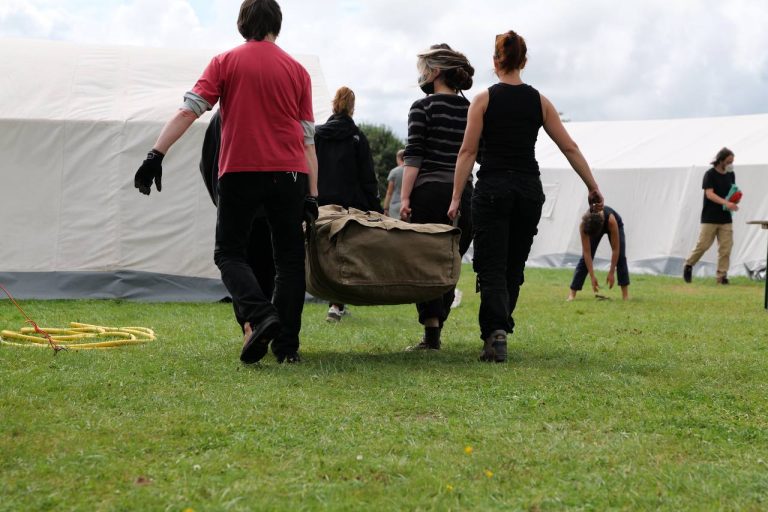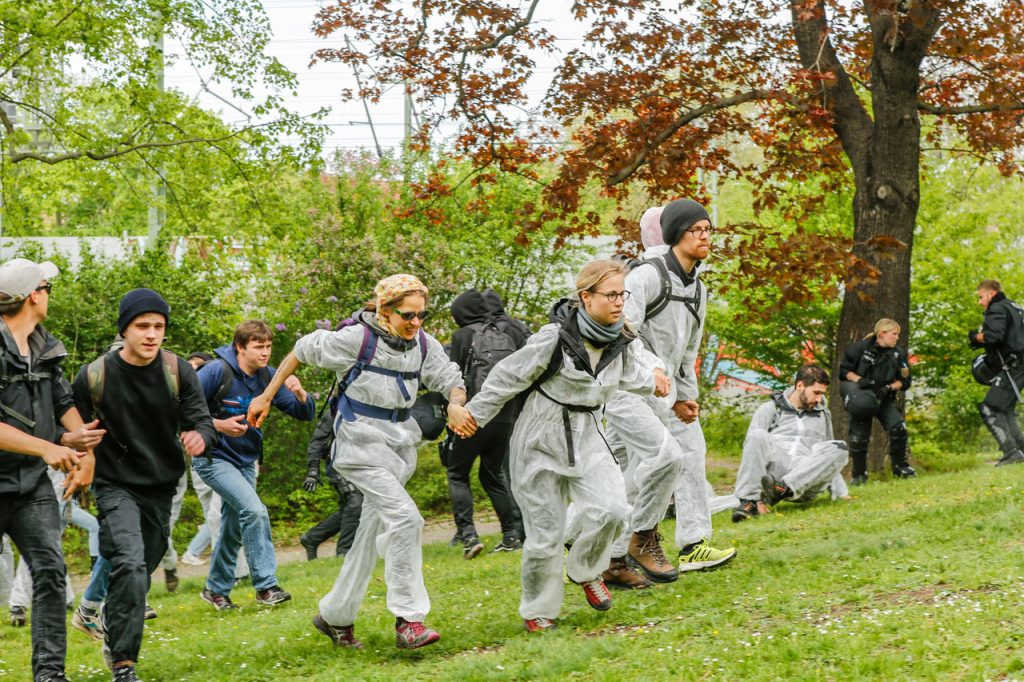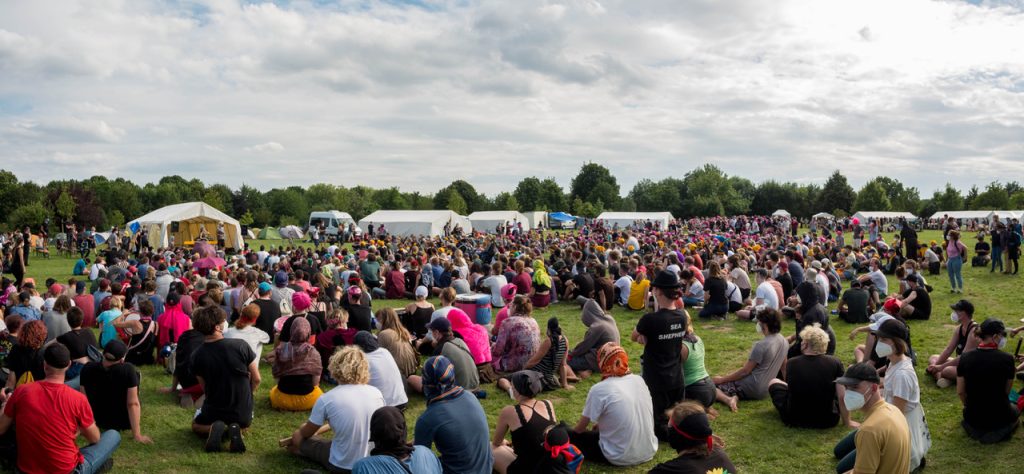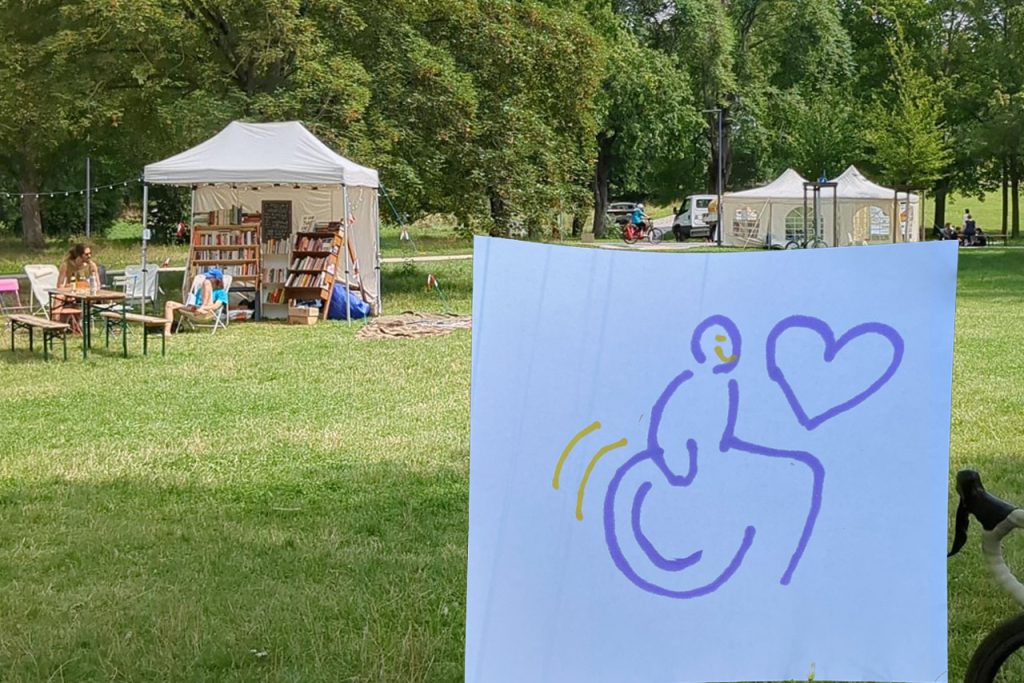We took a lot of time to draw up the concept, which will also serve as a basis for the coming years. Due to limited capacities, some measures that required early planning were left undone.
We learned a lot during this process and are motivated to continue working on practical implementation next year. In addition, there are a number of barriers at the camp that we cannot remove with the resources available to us.
We are therefore aware of several gaps in our concept. We would like to make these transparent here so that you can make an informed decision about attending the camp.
We are aware that it is impossible to compile an even remotely complete list of all the barriers that people experience and that this list is largely based on our experience and knowledge.
We will update the list regularly.
We are always open to finding individual solutions to make your stay as self-determined as possible.
or by phone every Tuesday from 2 to 4 p.m. on +49 163 9799864.
Will not be implemented:
-
DGS interpreting (DGS is short for German Sign Language)
-
automatic closed captioning (still uncertain – we will update it here on the website when there is reliable information)
-
full–coverage floor plates
Remaining barriers
Blindness and visual impairment
- Obstacles that are difficult to recognize, such as tent cords or pegs
- No tactile guidance systems at the camp
- Little to no information in Braille
- Arrival: Long way (approx. 1 km) from a low-barrier public transport stop to the camp
Chronic Illnesses
-
Mobility: We endeavour to make the site as accessible as possible. However, we cannot guarantee short or well-surfaced paths for everything.
- Quiet: The camp is a busy place. Absolute peace and quiet will not be possible despite hearing protection.
-
Weather:
-
Rain: The camp takes place outdoors. Although all programme points and important locations are covered, too much rain can make the paths difficult to walk on.
-
Heat: We have a number of measures in place to counteract the heat, such as lots of trees, covered tents and sufficient drinking water. However, we can’t do much more in hot weather.
-
Deafness/ hearing loss
-
No full interpretation into easy language, sign language or foreign languages
-
Not all participants & helpers are trained in accessible communication
-
Much of the information is in written language
-
Loudness or stimuli at the camp can make communication difficult
-
Everyday assistance is not always immediately available
Physical disabilities
-
Long walk (approx. 1km) from a low–barrier public transport stop to the camp
-
Mobility: We endeavour to make the site as accessible as possible. However, we cannot guarantee short or well-surfaced paths for all routes.
-
Weather:
-
Rain: The camp takes place outdoors. Although all programme points and important locations are covered, too much rain can make the paths more difficult to walk on.
-
Heat: We have a number of measures in place to counteract the heat, such as lots of trees, covered tents and sufficient drinking water. However, we can’t do more if the heat gets too intense.
-
Learning difficulties
- Not all information is available in easy or simple language
- Many workshops are in difficult language
- Not everyone at the camp is trained in easy language or inclusive communication
- Camp environment can be confusing or overwhelming
- Spontaneous support is not always immediately available
Neurodivergence
- Unpredictability: Even with a structure and plan, there can be spontaneous changes (e.g. programme postponements, weather changes)
- High social density: Many people in a confined space can cause sensory overload or social pressure – even in quieter areas.
- Loudness: Despite quiet zones, noises such as music, announcements or crowds of people cannot be completely avoided at a camp.
- Communication barriers: Not everyone at the camp is sensitised to neurodiverse needs or communication.
Psychosocial disabilities
- Not all participants & helpers are trained in trauma–sensitive language and facilitation
- Loudness or stimulation during active participation in the camp
- Abundance of programme and networking opportunities can cause fear of missing too much during breaks or by choosing one option over another
Speech- and communication disabilities
- No full interpretation into plain language, sign language or foreign languages
- Not all helpers are trained in accessible communication
- Much of the information is in written form
- Loudness or stimuli at the camp can make non–verbal communication difficult
- Spontaneous assistance is not always immediately available



